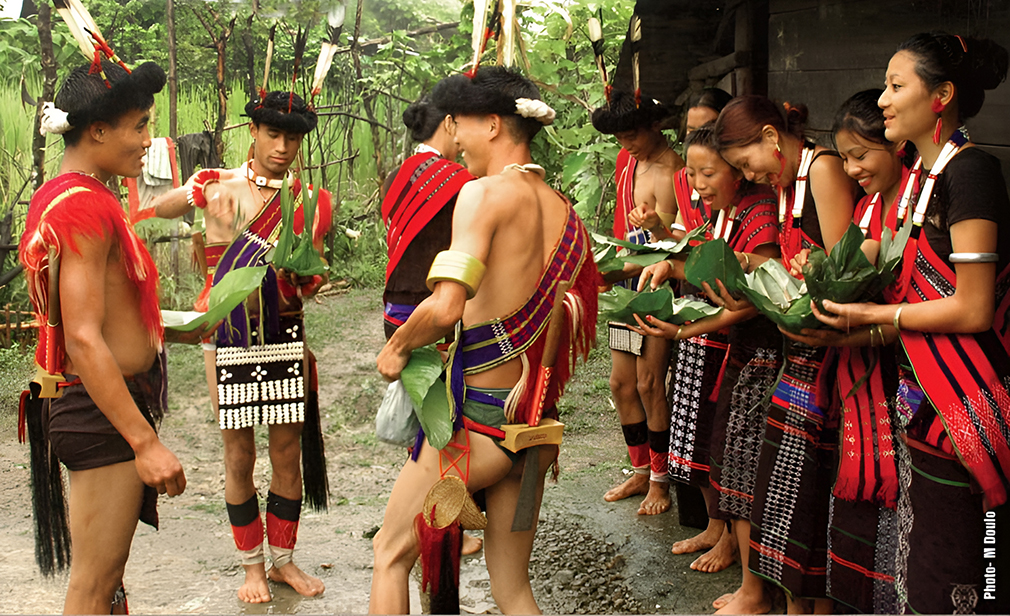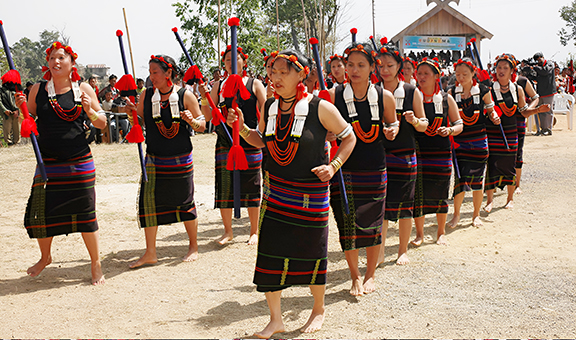Harvest blessings and brotherhood
Tokhü Emong is not just a celebration of the harvest; it's a spiritual journey where the Lotha Nagas express their gratitude to the gods for the blessings bestowed upon their land. It's a time to pause after months of hard work in the fields, and this pause is marked by relaxation, revelry, and camaraderie.
The festival unfolds with the exchange of food, gifts, and folklore narrations among friends, families, and neighbours. Houses are open to guests, and every household prepares a sumptuous feast. The atmosphere is filled with the melodious tunes of community songs, the rhythmic beats of traditional dances, and an overall sense of merriment.
Gifts of food reinforcing friendship
During Tokhü Emong, the Lotha Nagas showcase their rich cultural heritage through traditional attire that reflects their social status. Colourful dresses, intricate patterns, and distinctive headgear adorn both men and women, creating a picturesque scene.
One remarkable tradition during the festival is the exchange of cooked meat among friends, symbolising the depth of friendship and mutual appreciation. The number of meat pieces exchanged signifies the value of the bond. It's a heart-warming way to strengthen friendships and reinforce the bonds of brotherhood.
Tokhü Emong is a living testament to the history, culture, and heritage of the Lotha Nagas. The festival's historical significance is intertwined with the unity and shared heritage of the Lotha tribe. A post-harvest festival, the celebrations include offering prayers to God for joy and prosperity. On this occasion, people express gratitude towards each other for their dedication and hard work in looking after the crops resulting in a great harvest.




































